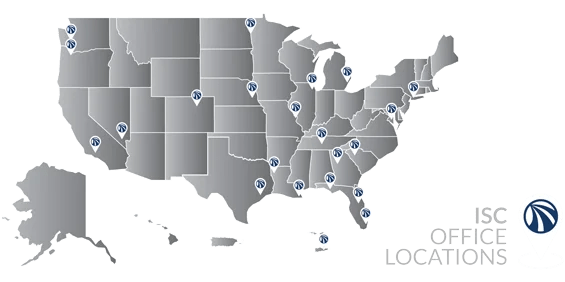INNOVATIONS, IDEAS, & INSIGHTS
About the Blog
ISC experts share their thoughts on current innovation, insights, and thought leadership on important industry topics and corporate responsibility.
Archives
Categories
Advancing Emergency Management - Bridging Practice and Evidence-Based Knowledge
2/2/2021

By Daniel Martin, PhD, CEM President of ISC
Advancing Emergency Management – Bridging Practice and Evidence-Based Knowledge
2/2/2021
About the Blog
ISC experts share their thoughts on current innovation, insights, and thought leadership on important industry topics and corporate responsibility.

By Daniel Martin, PhD, CEM President of ISC
Although it dates back to the civil defense era, compared to other disciplines, emergency management is a relatively new profession that is poorly defined by title, loosely grounded by theory, and often overshadowed by other professional disciplines that often receive more financial or political support than our discipline.
WE CAN CHANGE THIS!!!!
Archives
Emergency management's lack of scientific knowledge base and application of imperial research, coupled with the profession's rapid growth, everlasting change, and escalating need, has resulted in an influx of grand theoretical policies that are developed in a sanitized political environment. There are increasing political and economic pressures to reduce disaster losses, but there are still political, economic, and cultural obstacles to build the knowledge capacity required to develop a proactive and effective national emergency management system. This pressure on the emergency management community has resulted in a band-aid approach to emergency management policymaking. Policies and programs are instituted in the aftermath of a disaster, with little investment in building the evidence-based knowledge needed to deal with the next disaster, the changing dynamics of our society, or with the over-arching pre-disaster issues. As a result, emergency management has been plagued with inefficiencies and the inability for it to mature into respected profession.
Many scholars and practitioners in the field of emergency management have recognized that the scope and challenges of local emergency management is increasing; however, the debate continues inside and outside of the profession on just what are the roles and responsibilities of the emergency manager and how best to advance the profession. Poor policymaking coupled with the broadening role of the emergency manager creates conflict between the old and new. This requires change in how we define the profession and identify the skillsets needed for tomorrow’s emergency manager. Emergency management practitioners and scholars must see themselves as a united front, providing a shared foundation to advance the profession.
Without the practitioner, there would be no scholar. Without the scholar, the emergency management practitioner would have little influence and persuasion. Research aimed to advance the profession could not be conducted without the practitioner. Without research, the profession will continue to wander aimlessly from disaster to disaster and catastrophe to catastrophe. The emergency management community must value the contributions of higher education. Higher education must value the perspective of emergency management and their ability to excel in a many diverse fields yet be scholars in their own discipline. We must also appreciate the contributions other disciplinary research in such fields as public health, public policy, public administration, law, business management, economics, environmental science, and other closely related disciplines.
Without a cultural revolution of the profession, as well as a new strategic approach that connects emergency management to the broader issues and community concerns, our discipline will remain in a position of limited or constrained effectiveness.
We are proud to initiate the discussion, contribute to building this evidence-based knowledge, and helping to ignite the discipline.

